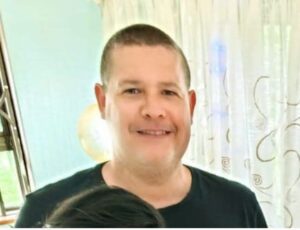“Do you have any lesbian players in your squad” – BBC reporter asked Ghizlane Chebbak during press conference at FIFA Women’s World Cup in New Zealand.
A Fifa official moderating the press conference intervened, saying: “Sorry this is a very political question so we will just stick to questions relating to football.”
But the journalist pressed on, insisting: “It is not political, it is about people. Please allow her to answer.” At which point, Chebbak smiled and shook her head.
The BBC has apologised after one of its reporters asked the Morocco captain whether any of the squad at the ongoing Women’s World Cup are lesbians.
Morocco, a Muslim-majority country, are the first Arab nation to qualify for the World Cup and critics claim the question posed to Ghizlane Chebbak in a pre-match press conference potentially endangered the safety of the squad.
Morocco captain Ghizlane Chebbak’s almost in disbelief reaction to the question, says it all.
A completely unethical out of line question that poses safety concerns to the players he asking to be named.
Bizarre push followed. Same-sex sexual activity between men or women is criminalised in the North African country, with a maximum penalty of three years’ imprisonment and a fine.
This prompted a reporter from the BBC World Service to ask Chebbak ahead of her side’s opening match against Germany: “In Morocco, it is illegal to have a gay relationship. Do you have any gay players in your squad and what’s life like for them in Morocco?”
“No, it’s not political,” the journalist replied. “It’s about people, it’s got nothing to do with politics. Please let her answer the question.”
A BBC spokesperson told CNN: “We recognise that the question was inappropriate. We had no intention to cause any harm or distress.”
There was then one more question before the press conference was ended.
According to Human Rights Watch, “Moroccan law also criminalizes what it refers to as acts of ‘sexual deviancy’ between members of the same sex. Article 489 of the penal code punishes same-sex relations with prison terms of up to three years and fines of up to 1,000 dirhams ($91).”
The Athletic’s Steph Yang, who was in the room, said that “some members of the Moroccan media were audibly dismayed by the question.”
Shireen Ahmed, a reporter for CBC Sports who was also in the room, wrote that the reporter was “completely out of line.”
“Harm reduction matters and posing the question to the captain or coach was unnecessary,” she added.
“Asking a player about her teammates and whether they are gay and how it affects them when you know it is not permissible is bizarre and out of line. The captain cannot out players nor comment on policy bc [because] it could be dangerous for them, too,” Ahmed wrote.
“If reporting harms someone, it is not only unethical but dangerous.” “The question was waved off by a FIFA media officer moderating but it shouldn’t have been asked.
“Asking a player about her teammates and whether they are gay and how it affects them when you know it is not permissible is bizarre and out of line.
“The captain cannot out players nor comment on policy bc (sic) it could be dangerous for them, too.
“This isn’t an issue of journalistic freedom.
“You can inquire about social laws in different places without endangering people.
“Journalists have an obligation to be fair, accurate and practice with care. If reporting harms someone, it is not only unethical but dangerous.”
Morrocco are making their debut at the FIFA Women’s World Cup but suffered a 6-0 defeat to two-time champions Germany in their Group H opener at the Melbourne Rectangular Stadium in the Australian city.
Discover more from KossyDerrickent
Subscribe to get the latest posts sent to your email.







